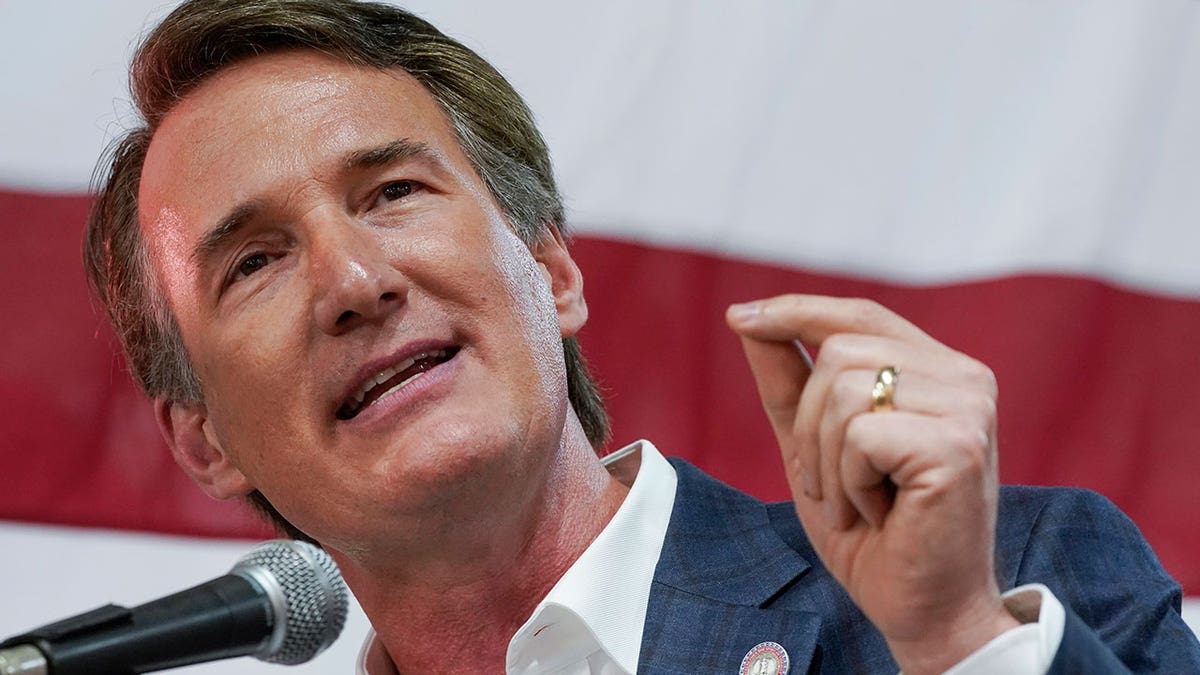As Virginia Gov. Glenn Youngkin weighs whether to restore the civil rights of convicted felons who have served their time, he is considering at least some of the circumstances of their crimes, his administration said Monday in a letter to the state NAACP.
The Republican governor is "less likely to quickly restore the voting rights of anyone who used a firearm in the commission of a crime," Secretary of the Commonwealth Kay Coles James wrote to Robert Barnette Jr., president of the NAACP Virginia State Conference.
Youngkin will also "generally speaking, but not always" work to restore the voting rights of those who committed nonviolent crimes, James said in the letter, which was obtained by The Associated Press.
In Virginia a felony conviction automatically results in the loss of certain rights such as voting, serving on a jury, running for office or carrying a firearm. The governor has the sole discretion to restore them — with the exception of firearms rights, which only a court can do.
Youngkin's handling of the process has been under scrutiny for several months after his administration confirmed it had shifted away from an at least partly automatic restoration system used by his predecessors. At least two lawsuits have been filed challenging what critics call an opaque process that could result in discrimination.

Virginia Gov. Glenn Youngkin speaks on June 21, 2022, in Richmond. Virginia Gov. Youngkin is deciding whether to restore voting rights to felons. (AP Photo/Steve Helber, File)
Last week the NAACP said documents it obtained through public records requests "reveal a lack of clear standards and timelines" that creates a confusing system "rife with opportunity for discriminatory impact on Black Virginians and other Virginians of color."
In a statement, the group also said the restoration process is operating at an "increasingly slow pace," potentially blocking thousands of people from participating in upcoming elections.
Monday's letter from James, whose office oversees restorations, strongly denied both allegations. It accused the NAACP of implying that determinations are made on the basis of race and said nowhere in the application process is there a reference to "race, religion, or ethnicity."
GOP REP. DAN KNODL WINS OPEN WISCONSIN SENATE SEAT, CREATING REPUBLICAN SUPERMAJORITY IN THE CHAMBER
"Governor Youngkin and I both guarantee that these factors play absolutely no role in the process or the serious decisions that we make on behalf of returning citizens," James said.
Meanwhile the administration has "made serious progress to reduce wait times" and is working to increase transparency, she added.
CLICK HERE TO GET THE FOX NEWS APP
Representatives of the NAACP could not immediately be reached for comment on the letter. The organization planned to hold a news conference Tuesday.
According to a lawsuit filed last month, Virginia is the state with the fifth-highest number of citizens disenfranchised for felony convictions — over 312,000.
Black Virginians make up less than 20% of the state's voting-age population but account for nearly half of all those disenfranchised due to a felony conviction, according to the suit.





